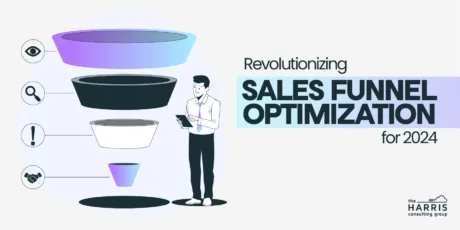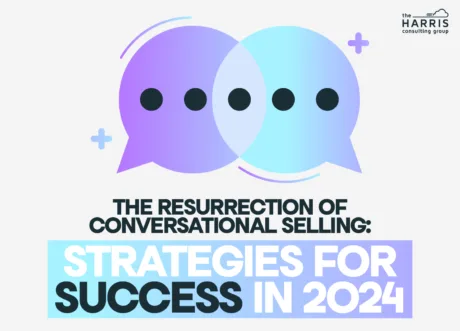It’s that time of year. That time when everything you’ve been planning for either happens or it doesn’t. And on top of that, it’s time to start planning for next year, which for many businesses means planning a sales kickoff event (SKO).
So how do you plan for a successful SKO?
- Is it reviewing the numbers? Sort of.
- Is it the unveiling of a new product, service, or feature set? Perhaps.
- Is it the Rah-Rah speech from the CEO? Maybe.
- Is it the announcement of new marketing initiatives to support lead generation and demand generation efforts? Getting warmer.
You know what really sets the best sales kickoffs apart from the mediocre ones? Providing your sales team with something more valuable than they had before they walked in.
Often times, people put too much stock in performance reviews, new products and services, and marketing plans. While these initiatives have their place, they are often just band-aids to the bigger issue at hand, which is: How do we help the sales team close more deals?
While product knowledge and marketing plans may influence this desired outcome, they don’t do much in the way of improving close ratios, discovery and qualification of opportunities, and forecasts.
Now hear me out for a second. If your Sales Kickoff doesn’t focus on improving a particular skillset through sales training and sales coaching, then all you’ll be doing is accelerating the suck factor. You’re just making it more likely that your sales reps will take more of a “Show-up and Throw-up” approach when selling. Or your sales team or SDRs will not do as a good of a job in the qualifying or discovery stages of the sales process.
To ensure that your sales kickoff actually improves your sales reps skill sets, and enhances lead generation and deal closings, follow these tips when planning your next Sales Kickoff Meeting.
Tip 1: Define the Behavior You Want to Change
You can do this by filling in the blanks to the following question:
After the SKO, we expect the Sales (SDR, Customer Success) Teams to be better at ____, ____, and ____.
Tip 2: Go Deeper
Most of the time, Sales VPs will say something like, “We want the sales team to be better at discovery and closing.”
That’s a good start, but as they say, the devil is in the details.
When someone says discovery, we typically respond with, “That’s great, but let me ask you something. Can you provide me with your definition of discovery as it relates to your organization? Are there specific instances you are seeing over and over in your pipeline review meetings that indicate a skill gap?”
Once you answer this, then you’ll know exactly what you want your SKO training and sales coaching around discovery should encompass. With this level of detail, you can now begin to build your agenda in a more targeted way. You can also include this in your communications with other department heads so they can help influence the training, even during their presentations to the sales teams.
But wait, there’s more.
Tip 3: Role Playing Matters
When it comes to sales training, role playing is an absolute must have, not a nice to have. With an average pf 6+ people engaged in the buyers’ journey, you simply cannot easily provide a one size fits all approach to sales training and coaching. The good news is that today’s newest inside sales professionals are eager to learn, and don’t mind role playing. They crave interactive communications and feedback, and they thrive on the attention.
This is in contrast to the old guard of sales, who often times acts like a lone wolf. They think they don’t need role-playing, they find it beneath them. And they sometimes think that all SKOs and sales training sessions are all the same. But there are a few ways to get through to these curmudgeons.
- Ask them to participate in a leadership capacity for the role playing game.
- Ask them to participate by providing Real Play scenarios. (Real Play is when a participant describes a complex deal they sold somewhere in their profession and provides real insights into how they moved it forward.)
- Ask them to help create the role-playing scenarios so they make sure people are learning something.
- Ask them to leave. Let’s face it, in many sales organizations, there are just folks you can’t help because they can’t get out of their own way. So if they are going to be a distraction to the rest of the sales team, then let them leave the room with their negative energy. You’d be surprised how many will decide to stay and participate. Plus, those who leave (and those who stay with a shitty attitude) can give you the opportunity to make decisions with real data.
Tip 4: Find the Right Sales Trainer(s)
We know many companies love to shake it up by bringing in a renowned sales leader to assist with Sales Kick Off sales training. Many of us can actually come to any SKO and deliver something very solid that will work. But imagine how much better the training would be if you shared your insights from this exercise with your sales consultant? Their material may not change a lot, but we can assure you, the delivery and the execution will be stronger, provide more value, and allow for greater coaching after the SKO.
Tip 5: Define Who Owns Sales Coaching
Did you know there’s a football seminar that guarantees participants will be as good as Tom Brady after just four hours of training? There is also a new app that lets you learn how to play any song on the guitar better than Eddie Van Halen.
Yeah, you’re right, those don’t exist, so here is your final tip on delivering quality sales training at your SKO meeting.
Define who owns sales coaching. This means that whatever sales skills you want your sales team to learn and improve upon, someone in the organization needs to own the coaching aspect post SKO. You need to build in real call coaching, call debriefing, and feedback into your routine as a sales leader or sales manager. There is no report, document, white paper, or book that can do more for the success of your sales team than real live coaching. And whether it’s management coaching or peer-to-peer coaching, there are some amazing tools that can help you with coaching and feedback. They won’t do it for you, but they can help.
But failure to define sales coaching after any sales kickoff or sales training is the single biggest reason why training becomes useless in the minds of your sales team.
We’d love to hear from you. What are some of your best and worst experiences with SKOs?
If you have launched, or are going to be launching, your Sales Kickoff Planning, we’d love to help you. Click here to schedule a FREE 30 MINUTE SKO STRATEGY DISCUSSION.





